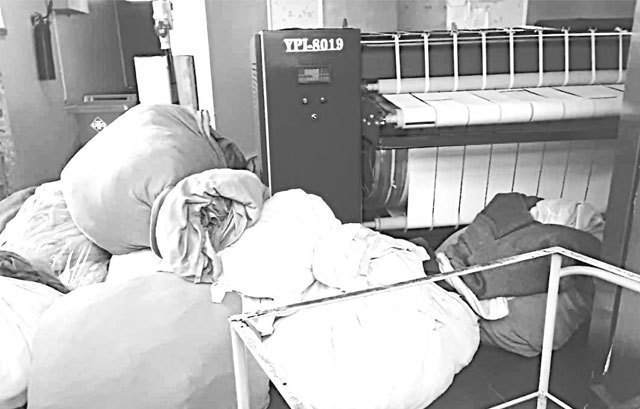By NATHALIE NDONGO-SEH (UN Resident Co-Ordinator) | 2020-06-30
As the Sustainable Development Goal for the month for June is SDG 17 on Partnerships, one can’t help but think of the following famous African Proverb: ‘If you want to go fast, go alone. If you want to go far, go together.’
Sustainable development requires inclusive partnerships at the global, regional, national and local levels, which are built upon a shared vision and goals that place people and the planet at the centre of development.
This year marks the Decade of Action towards achieving SDGs by 2030. This calls for acceleration of our efforts together.
Achieving the SDGs by 2030 requires concerted actions by civil society, businesses, international bodies, organisations of faith, and individuals, among other actors. Indeed, the SDGs can only be realised with strong partnerships and cooperation.
Early this year, COVID-19 engulfed the world. The pandemic has swiftly taken hundreds of thousands of lives, infected millions of people, upended the global economy and caused pervasive fear for the future.
Pandemic
However, the pandemic is more than a health crisis; it is an economic, humanitarian, security and human rights crisis. COVID-19 has highlighted severe fragilities and inequalities within and among nations. At the same time and possibly for the first time in human history, all of humanity is on the same side against the common enemy, coronavirus disease.
As stated by world leaders in their virtual high-level meeting of 28 May 2020, defeating the pandemic will require a whole-of-society, whole-of-government and whole-of-the-world approach driven by compassion and solidarity. In this regard, recently, His Majesty King Mswati III called on Commonwealth countries to work together to defeat COVID19.
COVID-19 knows no boundaries. As demonstrated by the devastations of the pandemic around the globe over the past months, no country can overcome the coronavirus disease alone. Global solidarity is not only a moral imperative, it is in everyone’s interests.
The world has never been in greater need for solidarity amongst regions, nations, sectors, communities and citizens. It has been encouraging in this regard to witness people in Eswatini and across the world come together in unity and solidarity through donations, technical assistance and other forms of contributions to support the fight against COVID-19.
On 19 June 2020, the UN Secretary-General, Antonio Guterres launched the UN Comprehensive Response to COVID-19 aimed at saving lives, protecting societies and recovering better. This policy document seeks to provide guidance for countries to develop strategies and programmes for building back better and use the crisis as an opportunity to address the climate crisis, inequalities, exclusion, gaps in social protection systems and the many other fragilities and injustices that have been exposed by COVID-19.
In Eswatini, after His Majesty King Mswati III declared COVID-19 a State of Emergency in March 2020, Governments (USA, Taiwan, Morocco, Ethiopia, and India to name only a few); the United Nations; the European Union; the World Bank; the Global Fund, philanthropic organizations such as Jack Ma foundation and Kirsh Foundation, the private sector, the academia, the media, civil society organisations such as World Vision, International Red Cross Society, Medecines Sans Frontieres, local civil society organisations and ordinary citizens through direct support to vulnerable people such as orphans, the elderly, persons living with disabilities; communities as well as individuals, including through donations made to the National Resource Mobilisation Committee came together as One in support of the fight against the pandemic and thus, to save lives and livelihoods in the Kingdom.
This support has helped to strengthen the health systems, ensured access to medical supplies and equipment, and has provided much needed food and cash assistance to the most affected persons in the communities.
In April 2020, the United Nations launched a COVID-19 Global Humanitarian Response Plan (HRP), which brings together all UN agencies, funds, and programmes to fight the pandemic while ensuring that the response reaches to the most vulnerable populations, including refugees, internally displaced persons, the elderly, youth, women and girls, persons living with disabilities and with conditions such as albinism and diabetes.
The HRP is focused on three strategic priorities:
1) Public Health Response – which seeks to contain the spread of the COVID-19 pandemic and decrease morbidity and mortality.
2) Socioeconomic Impact – which seeks to decrease the deterioration of human assets and rights, social cohesion, and livelihoods.
3) Social protection – which seeks to protect, assist, and advocate for vulnerable populations, including refugees, internally displaced people, migrants, people with disabilities, children and the elderly.
The UN Secretary-General has also issued a series of policy briefs, including the UN Comprehensive Response to COVID-19, that outline a global vision for the delivery of an effective and coordinated response to COVID-19 by the international communitythat ensures that the most vulnerable populations are at the centre of national responses, impacts of the crisis are mitigated and opportunities to recover better are identified and harnessed amidst the pandemic.
In March 2020, the Secretary-General issued the Shared Responsibility, Global Solidarityreport as well as theUN Framework for immediate socio-economic response to COVID-19reportin April 2020.On 23 June 2020, at the invitation of the Prime Minister, His Excellency Mr. Ambrose Dlamini, the United Nations Resident Coordinator in Eswatini presented those key reports to the Cabinet.
The Government and partners at all levels, in and outside Eswatini, have been working tirelessly to ensure that coronavirus does not spiral out of control. The dedication and efforts of the COVID 19 Task Teams and Regional Teams under the leadership of the Deputy Prime Minister, Senator Themba Masuku, continue to address heads-on infection prevention and control through contact tracing, impact mitigation, general public awareness and social mobilisation.
Solidarity and partnerships are at work and high speed in the preparation for the re-opening of schools and educational institutions. Under the leadership of the Government, and in consultation with key stakeholders such as teachers organizations, the UN, donors community and others, a framework to guide the safe re-opening of schools and tertiary institutions has been developed. The safety and welfare of pupils remains high priority and will require the collaboration and the support of all stakeholders, including the parents.
The UN in Eswatini continues to stand in solidarity with the government, partners and the people of the Kingdom. We continue to strive for a people-centered response to COVID-19 by engaging with communities, promoting respect for human rights and inclusion, advocating for gender equality and dignity for all.
Partnered
UN Eswatini has partnered with the National Disaster Management Agency (NDMA) to enhance the coordination of our humanitarian response, assess vulnerability levels and individuals at risk of being left behind, improve prioritization and reduce duplications while ensuring that assistance and protection are provided to vulnerable populations who need them the most.
At the request of NDMA and in close collaboration with the United Nations Office for the Coordination of Humanitarian Affairs (OCHA), UN Eswatini recently introduced the 4W Mapping Tool: an online tool that maps out the geographical presence of all partners by sector and provides a graphical analysis of the number and type of partners in each sector, as well as gaps or duplications in the assistance that is rendered.
The 4W tool is aimed at enhancing the coordination of all partners to ensure an efficient and timely response that leaves no one behind in Eswatini.
COVID-19 knows no boundaries. Equally, our resolve and efforts to recover and build a better future for all shall not be limited by our fears, anxieties, perceptions, present challenges and limitations, or any border or hurdle on our way to recovery.
Let us move forward as partners who face the same relentless and very lethal enemy and as partners engaged in a warthat continues to claims lives and livelihoods: a war that can only be won through unity, solidarity and partnerships. In that process, let’s ensure that we leave no one behind in Eswatini’s efforts to fight and recover from COVID-19, and ultimately deliver on our promises to protect the people and our planet.
share story
Post Your Comments Below

SOCCER - LIVING on borrowed time!
For the first time in history of local football, two of...

Status Capital Building Society shareholders are once again being asked to take part in an audaci...

BEAUTY Pageant Eswatini Chairman, Sandra Ismail, officially passed over the Miss Eswatini title t...

While things are falling apart at the Pigg’s Peak Government Hospital, the ministry of heal...
All material © Swazi Observer. Material may not be published or reproduced in any form without prior written permission.
Design by Real Image Internet